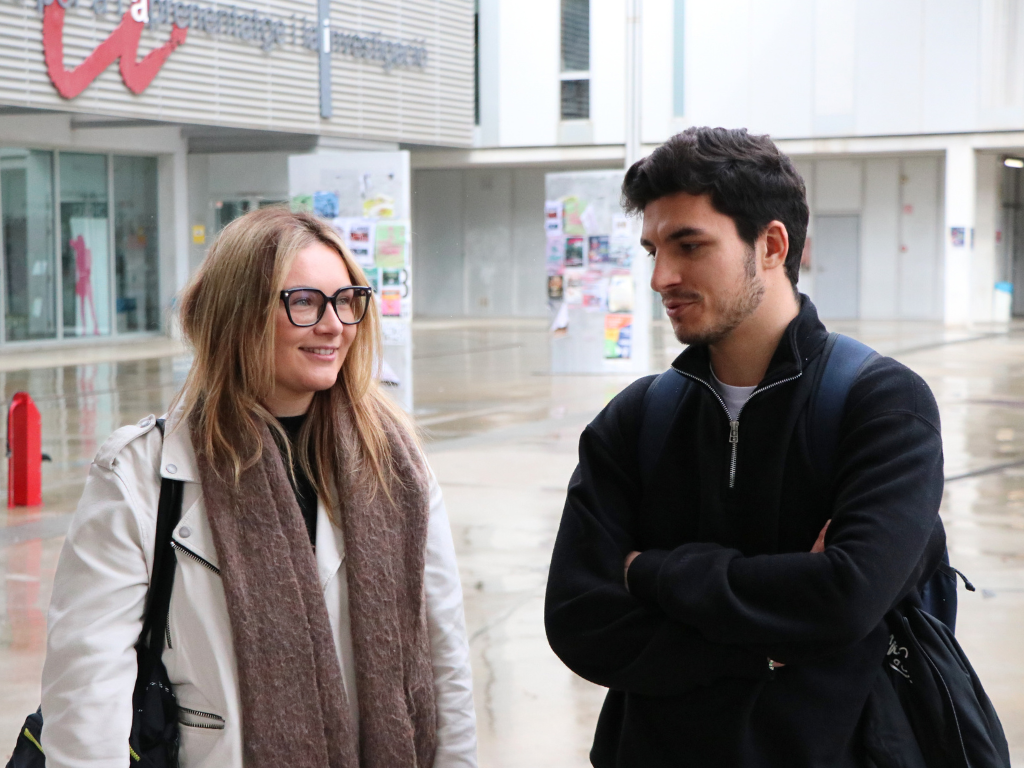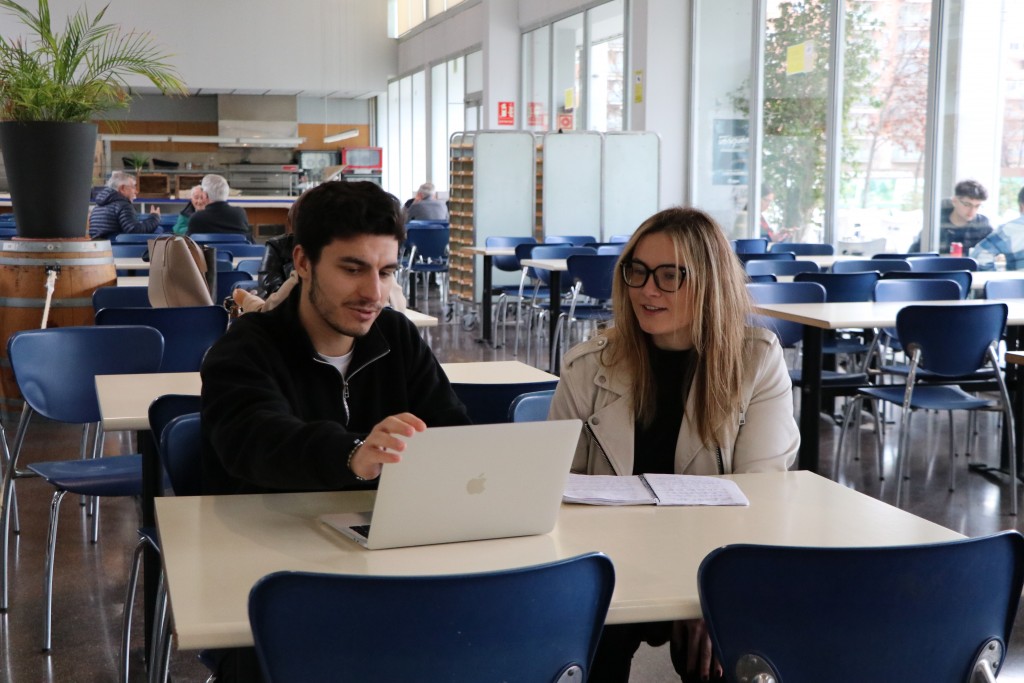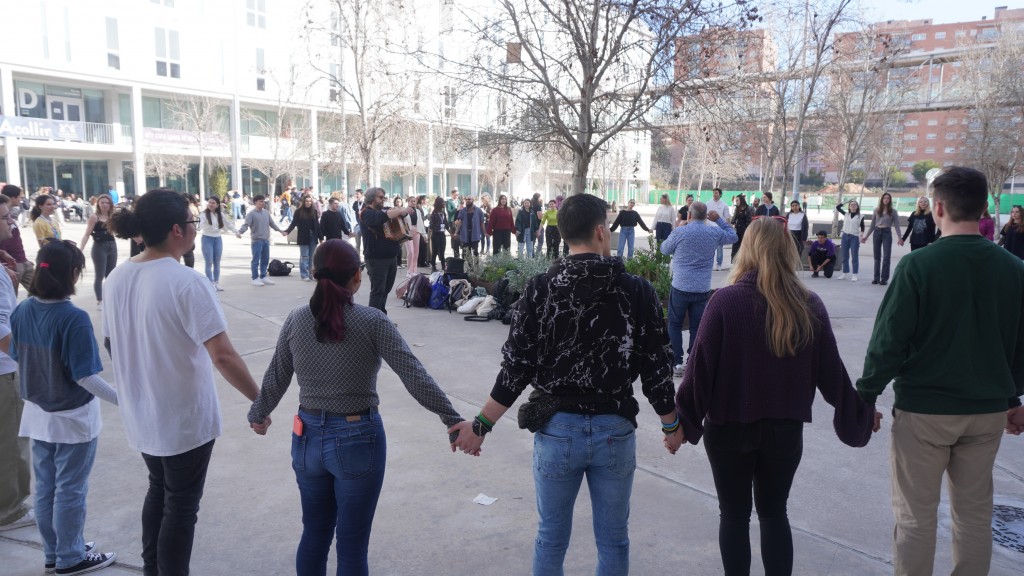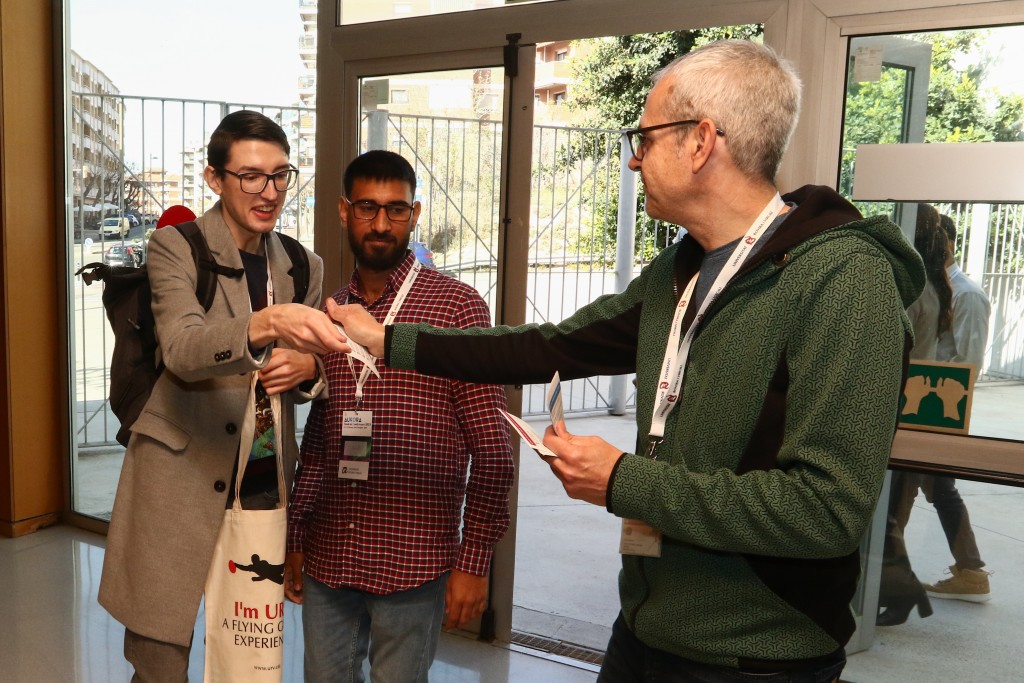16/02/2024
“You have to be curious, try things out, and change your habits, because now is the time and it soon goes.”
A total of 13% of URV students are international. Some are on a mobility programme from another university, an experience that they live intensely.

A total of 13% of URV students are international. Some are on a mobility programme from another university, an experience that they live intensely.
Kornelia Hasuniak and Louis Vincent are two of the 462 students who have arrived at the URV this academic year on a mobility programme to study a degree in English and a degree in Spanish Language and Literature at the Faculty of Arts. Of all the international universities where they could study, they chose the URV because of its location and the courses on offer, but their visit has allowed them to grow in other areas.
“I have been studying Spanish for fifteen years,” Kornelia explains. “I love this country and living here as an international student is a great experience”. She makes particular mention of the people she has met – “Here, everybody smiles a lot, and you feel welcome” –and the calmness of the city and the University.
Louis also values the calmness and the variety of activities available in Tarragona, largely made possible by the university schedules: “They are flexible and condensed. Contrary to my university, here you can go to class in the morning, and have the afternoon free”, he explains.
With regard to her experience of engaging in an international visit, Kornelia explains that she has learned that you can meet many people and that Erasmus is an exceptional tool. For her, it is an “enriching” experience that has enabled her to get to know the local cities and culture: “I would recommend it to everybody”, she says, and she advises the students who have just arrived not to be afraid and to enjoy the stay. “You make friends very quickly and everything is very easy”, she concludes.

Louis emphasises the multicultural factor: “In my group of friends there is a wide range of nationalities: Italian, French, other parts of Europe, a Mexican, a Japanese, etc. This is very interesting because we can share cultures and habits.”
He also points out that Erasmus has allowed him to live on his own for the first time, and be independent in such aspects as the administrative processes.
More than 2,000 international students
Like Kornelia Hasuniak and Louis Vincent, a total of 462 boys and girls from other universities are studying this academic year in URV faculties and schools. A few more, 496, have made the opposite journey, so they are now studying part of their course in one of the universities with which the URV has an agreement.
However, mobility students are not the only internationals on the URV campuses. There are 914 students from outside Spain (7.2% of the total) studying a bachelor’s degree; 642 studying a master’s degree (29.8%), and almost half of the 1,207 students studying a PhD (44.5%) are international students, although the enrolment is still open.
International students are, then, a community of 2,093 people this academic year, 13% of the total number of students at the URV. A total of 32% are from America; 28% from the European Union; 16% from Asia; 14% from Africa and 10% from other parts of Europe.
Welcoming the international students
The URV’s International Center advises students about accommodation, the healthcare system and the legalisation of their visit. It provides information about the leisure activities they can do and also allows them to take part in the URV Mentor programme, where university students accompany the new arrivals during their first days in Tarragona.

Kornelia Hasuniak mentions that although the first few days involve a certain amount of uncertainty, the implication of the URV staff and students, and the organised activities such as the Welcome Days or meetings for exchange students allowed her to meet a lot of people. In this regard, she feels that the support of the I-Center, other people from the university and, even, the city has been positive: “People are very helpful. If you have any questions, you ask someone, and they will help you for sure.”
Students can use the Sports Service, the Language Service and the job website, and they also have access to psychological care, opportunities for voluntary work and cultural classrooms.
An international visit ushers in a time of change and Louis advises newcomers to “be curious, try things, change your habits, because now is the time and it soon goes.” In this regard, international students also have to face some aspects of cultural shock. For Louis, one issue has been adapting to the daily routines and the times at which they take place, which are different from the ones in his country.

This week, the International Center and the Language Service have organised several sessions to welcome the students who have come this semester. In these sessions, they have been introduced not only to the services they can use on a daily basis, but also to the social and cultural context of the university. For this reason, a workshop is organised to give them sociolinguistic information about the Catalan language, the language normally used at the University. Also, as part of the URV’s Language and Cultural Welcome Plan, students have more elementary courses and cultural activities available to them.
